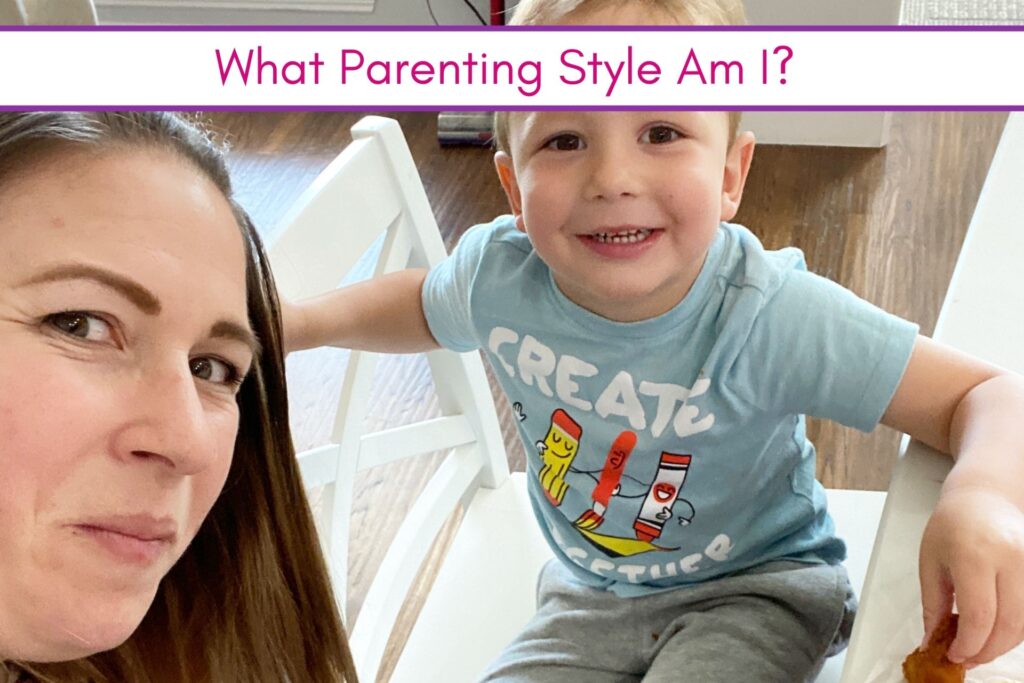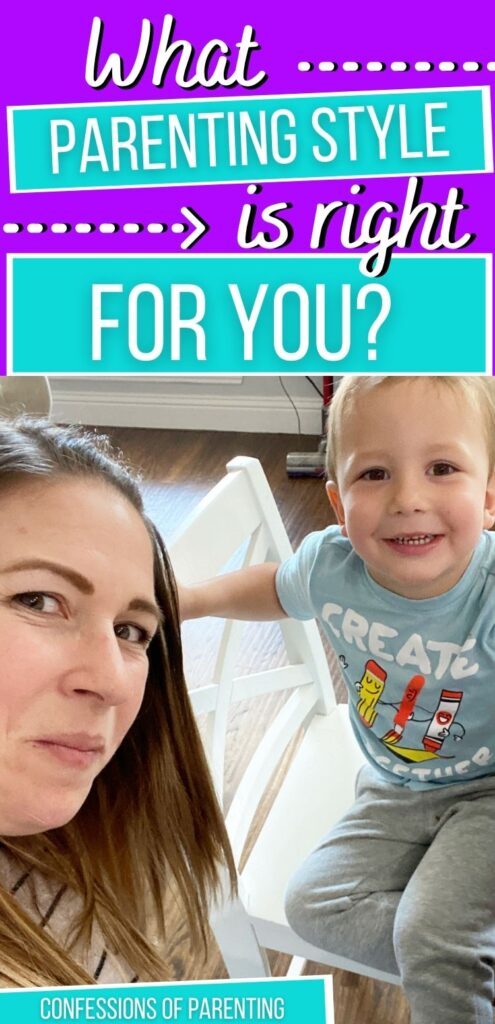What is your parenting style? You may be asking yourself what is the best parenting style to have? We are breaking down the 4 most common parenting styles to help you determine what kind of style you hope to adapt in parenting your kids.
Parenting Styles
Before having children, I thought I was going to be the perfect parent (don’t we all?). Of course, I was going to be a no-yelling parent. Once I became a mother, those goals of being the perfect parent vanished completely. I have yelled at my kids more times than I can count, used empty threats to get my kids to obey, and was hard on them when they were just being kids.
Because the truth is: parenting is HARD. It is one of the most amazing things in the world, but it is so HARD. And every parent wants to avoid making parenting mistakes but we all seem to make them time and time again. At least I do!

With all of the parenting styles out there, how do you know the one that is right for you? The fact is that there is no ONE right way to parent. There are many different parenting styles out there (some better than others) so it is finding the one that you feel like is right in your situation for your family.
It isn’t possible to be a perfect parent. But recognizing your parenting style can help you recognize where you are at and how you can improve.
Why Does Parenting Styles Matter?
You may be wondering why does my parenting style matter? Parenting styles have a direct effect on how you interact and respond to your children. You may read these 4 parenting styles and be envious of the one you want to be, but discover that you are currently using a different one to parent.
By recognizing which style we are, we can learn more about the parenting style we would like to become and take actionable conscious steps to be more like it!
Of course, many parents find themselves being one dominant parenting style with bits and pieces of others. That is why there are so many different spin offs of these styles like conscious parenting, peaceful parenting, parallel parenting and more.
What is my parenting style?

The 4 Main Parenting Styles
There are four main parenting styles, authoritarian, Permissive, uninvolved and authoritative. Each with its own advantages and disadvantages.
Authoritarian Parenting
Authoritarian parents are often seen as the “drill-sergeant” parents. This parenting style is characterized by parents who have high expectations for their kids, but show low levels of responsiveness and warmth.
These types of parents expect their kids to obey simply because they are told to. Kids are not included in decision making or in rule-making they are told what to do.
Outcomes of Authoritarian Parenting
Authoritarian parenting may seem like a good way to go because it usually produces very obedient kids. This obedience, however, comes at a steep price.
Kids who are raised by authoritarian parents usually have more self-esteem issues than those who are raised by parents who practice a different parenting style.
One of the main disadvantages of authoritarian parenting is kids can become very skilled liars. They adapt this skill because over the course of their life they have learned that if they lie they can avoid punishments. .
Permissive Parenting
Permissive parenting describes parents who show high levels of warmth toward their kids, but have low expectations. These parents may often indulge and spoil their kids. They love their kids dearly and show it by being their “friend” more often than being their parent.
Parents who practice this parenting style are slower to punish their kids. They are excellent at putting themselves in their kid’s shoes and believe their kid’s happiness to be the ultimate goal.
Outcomes of Permissive Parenting
Many parents want to be friends with their kids. But that “friendship” can definitely come with some effects you want to consider.
Kids who are raised by permissive parents tend to struggle academically. They also tend to have issues respecting authority and rules – because they have never had to in their life.
Permissive parenting can also lead to kids with low self-esteem which can be harmful to their mental health.
Kids of permissive parents can have some health problems as well because it is hard for permissive parents to say no. These can be but are not limited to obesity and dental issues because permissive parents may have a harder time limiting junk food or enforcing good dental hygiene.
Uninvolved Parenting
Uninvolved parents (also referred to as neglectful parents) show low levels of warmth and low expectations for their kids. These parents may not know what their kids are doing or where they are most of the time. They don’t impose rules on their kids – even rules that are meant to keep their kids safe.
Keep in mind: uninvolved parenting is not the same as parents who don’t love their kids, in fact it is the opposite. These parents love their kids very much.
Outcomes of Uninvolved Parenting
Similarly to kids of permissive parents, kids who are raised by uninvolved parents are likely to have lower self-esteem and struggle in school a bit. These kids have increased risk of substance abuse than their peers who are raised using different parenting styles.
Authoritative Parenting
Authoritative parenting creates an environment that is high in warmth and responsiveness and high in expectations. These parents are the real cheerleaders of the parenting world. They set clear boundaries for their kids and seek the help of their kids in creating those boundaries. They communicate their expectations clearly and allow their kids to make mistakes.
Another aspect of authoritative parenting that sets it apart from the other parenting styles is the understanding of emotions. Authoritative parents understand that emotions are not dangerous and that their kids are meant to feel emotions – even negative emotions. These parents are not afraid to face negative emotions head-on and help their kids through those feelings.
Parents who practice authoritative parenting understand the positive impact that a loving parent-child relationship has on their kids. They also recognize the importance of raising kids who are independent and emotionally intelligent.
Outcomes of Authoritative Parenting
Kids raised by authoritative parents have the best outcomes of all 4 parenting styles. These kids are the most likely to grow into well-adjusted, emotionally intelligent adults. They will likely have the highest levels of self-esteem and will be generally happy. When they experience negative emotion, they will know that it is just a normal part of life.
For more information on parenting, check out these great posts!

Michele Tripple is a renowned author and expert in the fields of parenting, relationships, and personal development. With her degree in marriage and family studies, her experience as a Family Life Educator, and over a decade of experience as a professional writer, Michele has authored books that provide practical advice and insights into improving family dynamics and personal growth. Her work is celebrated for its blend of research-driven information and relatable, real-world applications. Michele has been a keynote speaker at conferences and has contributed to numerous publications and media outlets, solidifying her reputation as an authoritative voice in her field and helping families build relationships.
